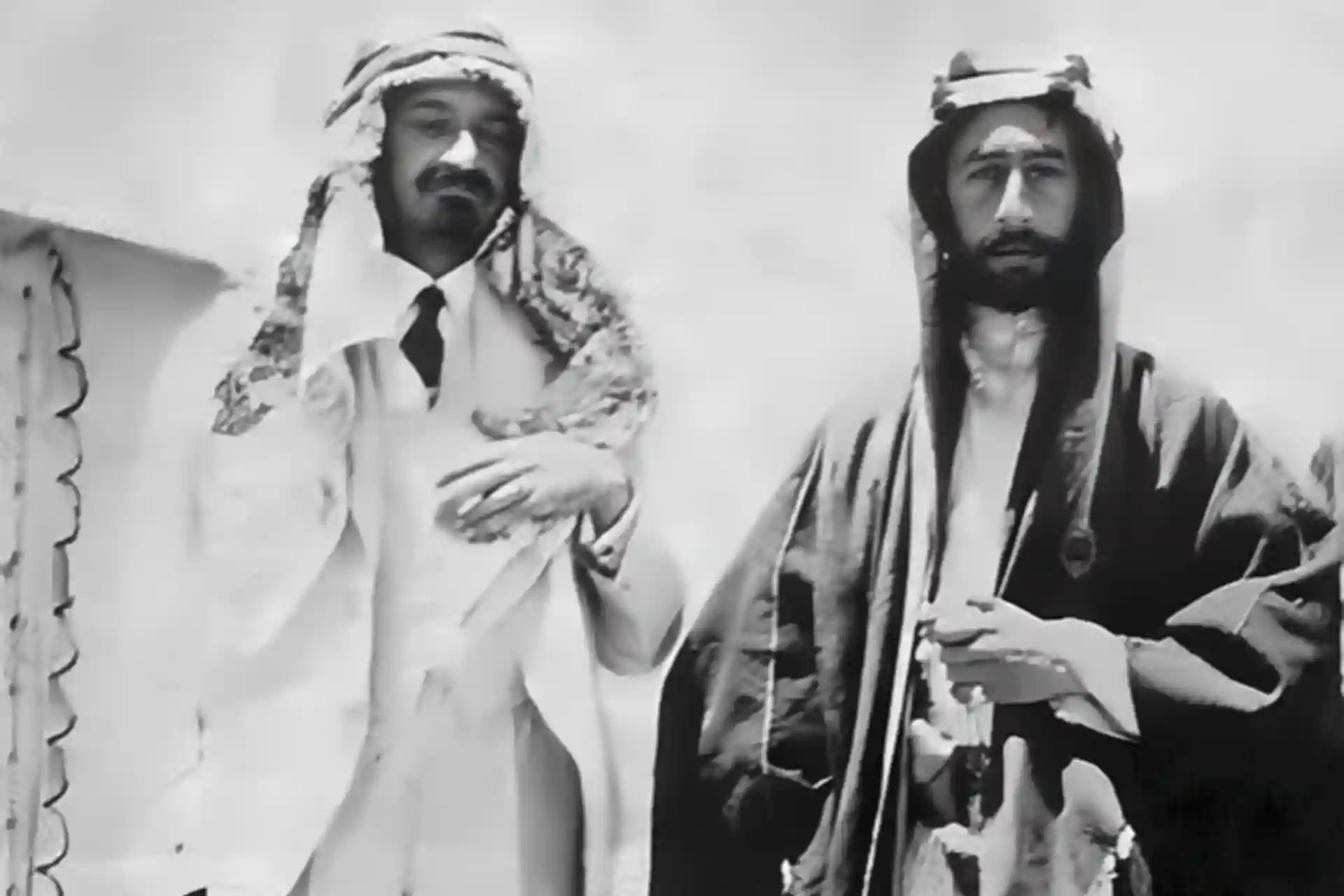Today in History: The Faisal-Weizmann Agreement of 1919
Today in History: The Faisal-Weizmann Agreement of 1919
The Faisal-Weizmann Agreement was an early attempt to reconcile Arab and Zionist aspirations in Palestine. Signed at the Paris Peace Conference in 1919, the document had a lasting impact on the region, paving the way for the forced displacement of Palestinians and decades of conflict and occupation that continue to this day.
How did the incident actually start?
When it comes to the roots of the Palestinian question, many point to the Nakba ("Catastrophe") of 1948, when hundreds of thousands of Palestinians were forcibly displaced from their homeland. Others point to the famous Balfour Declaration of 1917 as the turning point that set the stage for the establishment of a Zionist state in historic Palestine. However , two years after the infamous declaration , a lesser-known but highly significant event occurred: the signing of the Faisal-Weizmann Agreement in 1919, which sought to reconcile Arab and Zionist aspirations with profound consequences for the region.
The treaty, signed on 3 January 1919 during the Paris Peace Conference, was an agreement between the short-lived Prince Faisal of the Hejaz Kingdom (son of Sharif Hussein of Mecca and a prominent leader of the Arab nationalist movement) and Chaim Weizmann, chairman of the World Zionist Organization . Faisal agreed to implement the Balfour Declaration and support the establishment of a Jewish homeland in Palestine, on the condition that Britain fulfill its promises to Arabs in World War I to gain independence from the Ottomans .
The agreement envisaged cooperation between Arabs and Jews, peaceful coexistence in Palestine, and broad economic cooperation in the region.
The agreement The parties signed the agreement "remembering the racial kinship and ancient ties existing between the Arab and Jewish peoples, and realizing that the surest way to realize their natural aspirations is to cooperate as closely as possible in the development of an Arab state and Palestine . "
But the idea behind it – that Arab nationalism and Zionist aspirations could coexist – was a complete mistake. Arab leaders were largely unaware of the extent of Zionist territorial claims, while Zionist leaders saw the agreement as a strategic opportunity to gain a foothold in Palestine, justifying it as a “ Torah right . ”
This intention is also evident in the text of the agreement: "All necessary measures shall be taken to encourage and facilitate the large-scale immigration of Jews to Palestine , and the dense settlement of Jewish immigrants shall be effected as soon as possible . "
What happened next?
The Faisal-Weizmann Agreement proved to be a short and fragile agreement. The Western colonial powers, Britain and France, reneged on their wartime promises to Arab leaders and instead partitioned the Middle East under the Sykes-Picot Agreement of 1916. Palestine was placed under a British League of Nations mandate, while Syria and Lebanon came under French control. Arab nationalist movements were suppressed, tensions between the Arab and Jewish communities in Palestine escalated, and massacres and acts of terror against the local population sowed the seeds of conflict for decades.
The consequences of this agreement and its collapse were, and remain, enormous. For the Palestinians, it was a betrayal of their dream of statehood . The newspaper Haaretz describes the events that followed with bitter irony : "Faisal left the Paris conference with a heavy sense of betrayal. He himself had committed treason by fighting alongside the British against the Ottoman rulers , but after the war the British betrayed him. Then he tried to justify himself ... "
Faisal joined the Syrian National Congress in July of that year . The Congress rejected the French mandate over Syria, declared Palestine an integral part of Syria, and opposed Jewish immigration to Palestine.
But it was too late. That same year, the French forcibly expelled Faisal from Syria, and three years later, Britain was given a [League of Nations] mandate in Palestine to implement the Balfour Declaration. In return, the British appointed Faisal as king of Iraq and his brother Abdullah as king of Jordan, while the Hejaz became part of Saudi Arabia.
The failure of Arab nationalist ideas, fueled by British hypocrisy and Zionist settler-colonialism, led to a series of wars and uprisings , including: It led to the Arab-Israeli wars of the 20th century. Its consequences today are evident in the occupation state's ongoing genocide in Gaza, the violation of Lebanese sovereignty, its policy of land grabs and expansion, and most recently in Syria, following the overthrow of the government by opposition forces. In addition, agreements to normalize relations between Israel and several Arab states have yielded little in the way of ending the wave of annexation, displacement, and violence, and of ending the statelessness of Palestinians.



